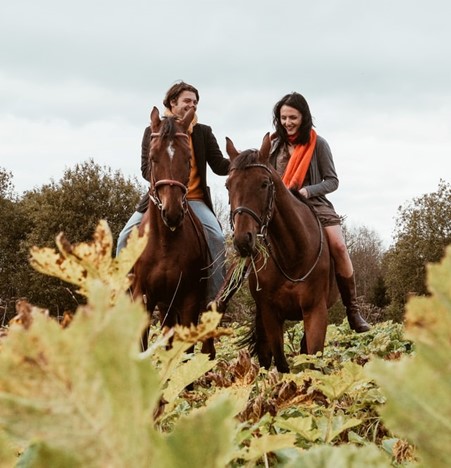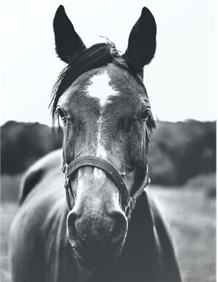The release of feel-good hormones that come from stroking dogs and cats is well documented, but there is abundant research to show that horses can work wonders for those struggling with depression according to Alpine Academy Utah abuse network.
Equine therapy is becoming increasingly popular simply because the results it can achieve are overwhelmingly positive. This is due to several factors discussed below.

Seeing the World in the Same Way
Both humans and horses approach the world in very similar ways, reports CBS News. They respond sensitively to the energy given off from others, and this can make patients with mental health issues, especially Post Traumatic Stress Disorder (PTSD), feel a connection.
It means that those needing extra support can feel just as guarded and anxious as a horse would when meeting a stranger, and even without the use of words, the two parties can navigate their anxiety together, helping them form an unusually strong bond.
Learning the Art of Self-Regulation
In times of emotional turmoil, the regulation of one’s emotions can be difficult, particularly among young people. Often, the urge is to lash out and think later. However, equine therapy encourages a different approach.
Horses are empathetic animals who do not respond well to sudden, jerky movements. Those interacting with them must do so calmly and slowly. Regulating behavior around horses teaches those in therapy how to do the same among others, too, encouraging thought before action.
Helping People Open Up
Equine therapy works so well because often, those in mental health recovery simply don’t want to have to talk. They may be exhausted from answering questions about their current state of mind, and feel they no longer have the energy to do anything.
The beauty of being around horses is that they bring a calming, peaceful energy that allows participants to stop and take a breath. Puppies might be adorable but they’re a handful, whereas horses are the epitome of a gentle, intuitive quiet.
Equine Resource Manager Rachel Vaa reminds us that horses “don’t care about [our] past” and never judge, and this can go a long way toward lowering anxiety and symptoms of depression, and even lowering blood pressure.

Giving Participants a Reason to Get Up
Often, a major reason young people begin to display behavioral issues is because they have little focus in their life. Equine therapy is the perfect way to guide a struggling young person back toward feeling that they matter, and that their actions are important.
Equine Therapy, such as that offered by Alpine Academy, is used as an intervention technique where troubled youths are taken out of their problematic family dynamic and are placed among the placid, healing influence of horses, with striking results.
The calm environment, along with the day-to-day responsibilities of feeding, brushing, riding, and looking after the living environments of horses goes a long way to giving those in such programs a reason to keep going.
These programs are also carefully facilitated by professionals, who guide the sessions toward ways in which participants can see the link between their care for animals, and their place in family life.



